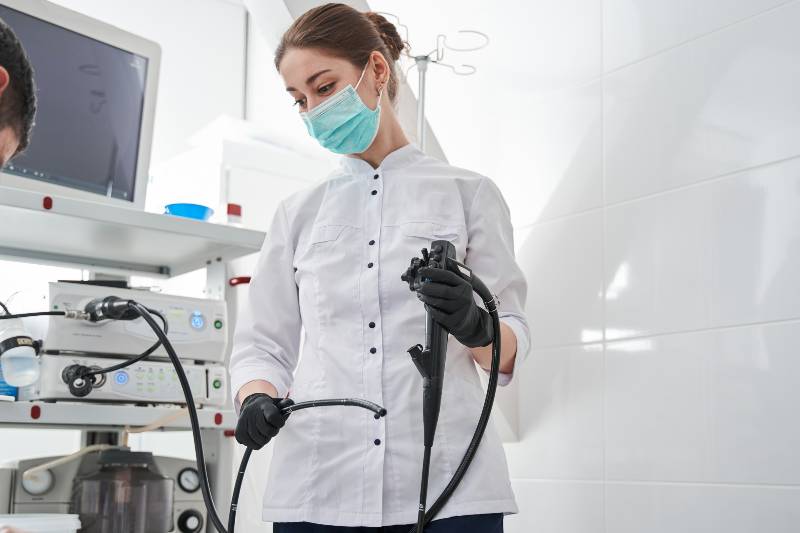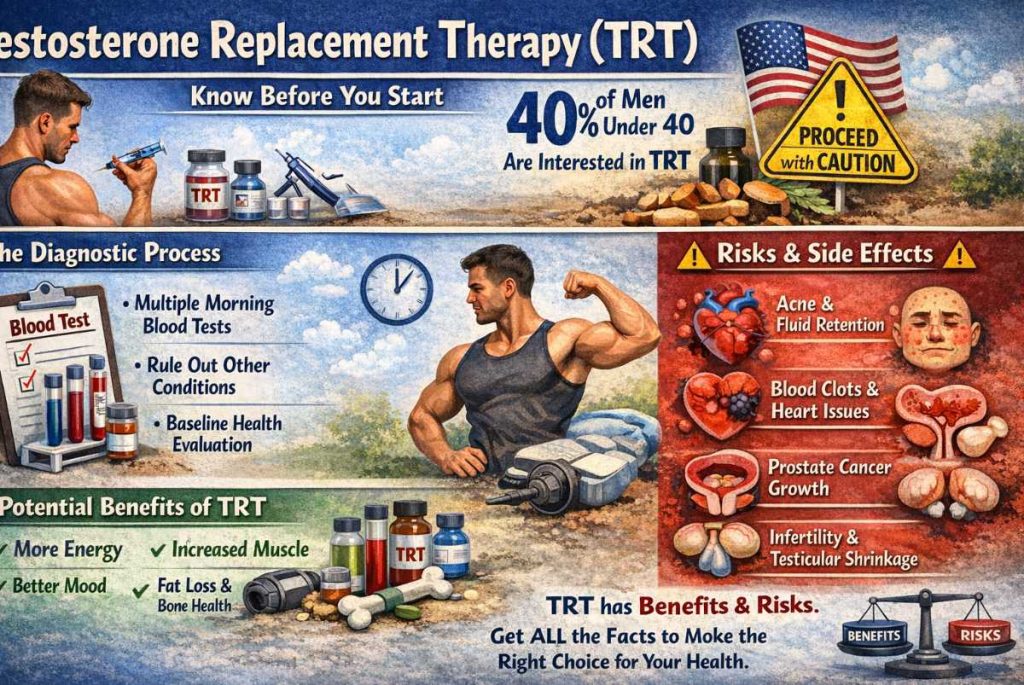As a regular alcohol drinker, you may wonder why your doctor suggests you a temporary pause from your favorite beverages following a colonoscopy.
As you may know, after the thorough examination of your colon, your body needs time to recover. Hence, there’s a period where certain drinks, particularly alcohol, are off limits.
Understanding the reasons behind this restriction is crucial for your health and recovery. Here are reasons why alcohol is a no-go after a colonoscopy and what you can sip on instead.
Reasons Why You Can’t Drink Alcohol After a Colonoscopy
When medical instructions ask you to refrain from drinking alcohol after a colonoscopy, it’s not just a precaution, it’s about ensuring your body heals without avoidable complications.
Here’s why your post-procedure plans should exclude alcoholic beverages:
1. You’ll Have a Sensitive Digestive Tract
After a colonoscopy, you should give your guts the gentle care and rest it needs to recover from the procedure.
This involves avoiding harsh substances like alcohol that could irritate or inflame the sensitive tissues inside your colon and taking measures to ensure a smooth and comfortable healing process.
Why? Well, during a colonoscopy, a thin, flexible tube with a tiny camera on the end—called a colonoscope—travels the entire length of your colon. It’s a bit like a mini roller coaster ride through your insides. This journey, although highly informative for your doctor, can leave the walls of your colon feeling a bit tender and bruised.
Your digestive system, which includes your stomach and intestines, is in charge of breaking down the food and drinks you consume into energy and waste.
Certain foods and beverages are tougher for your digestive system to handle even on its best days. Alcohol, with its acidic nature and potential to cause inflammation, is particularly rough on your stomach and intestines.
Imagine your digestive tract as a just-scratched surface. Drinking alcohol right after your procedure is like poking at that scratch—it’s going to get irritated and inflamed.
So, to prevent any extra irritation, it’s best to wait until your body has had a chance to heal completely. Skipping alcohol for a while means giving your digestive tract the peaceful break it deserves.
Allow your insides the time they need to recover from the invasive examination. When you avoid alcohol immediately after a colonoscopy, you’re choosing to support your body’s recovery process, ensuring that your digestive system can bounce back stronger and ready to take on its vital role again.
It’s about nurturing and protecting your inner workings during their most vulnerable time.
Just like you wouldn’t run a marathon on a sprained ankle, it’s not wise to inundate a sensitive digestive system with alcohol.
2. Burning, Pain, and Bleeding
Post-procedure experiences vary among patients, but one common denominator is the increased risk of irritation and inflammation. Drinking alcohol after a colonoscopy can lead to burning sensations, acute pain, or even bleeding—outcomes that are best avoided.
The alcohol can interfere with the natural healing of the mucosa, the inner lining of your colon which might have been disrupted during the procedure. Especially if a polyp was removed or a biopsy was taken, introducing alcohol to this scenario is akin to pouring salt on a wound.
3. Dehydration
A key aspect of post-colonoscopy care is to rehydrate. Prior to the procedure, you’re often required to undertake a bowel cleanse, which can lead to significant fluid loss.
Alcohol, a diuretic, increases the rate at which your body eliminates fluids, exacerbating dehydration instead of rectifying it. Hydration is a healer—it helps maintain normal body functions, assists the digestive system in recovery, and promotes overall well-being.
4. Interaction With Medication
You may have been prescribed medications or sedatives to ease your colonoscopy procedure. Alcohol can dangerously interact with these medicines, sometimes leading to severe side effects or diminishing their effectiveness.
To avoid hazardous interactions, it’s essential to give your body time to fully process any sedatives or medications before you consider a celebratory drink.
5. Increased Risk of Complications
The aftermath of a colonoscopy can sometimes include complications like bowel perforation or post-polypectomy syndrome, although these are rare. Alcohol consumption can mask the symptoms of such complications, which may include pain, fever, or abdominal discomfort.
Recognizing these signs early is crucial, and alcohol’s numbing effect can lead to delayed diagnosis and treatment.
6. Slows Recovery Time
Alcohol is infamous for slowing down the body’s recovery processes. It can impact immune response, interfere with sleep quality, and reduce your body’s ability to repair itself. After a colonoscopy, resting and allowing your body to heal is of the utmost importance, and alcohol can sabotage this restorative period.
Now that you have understood why alcohol and your post-colonoscopy self aren’t the best pairing, let’s explore what you can comfortably drink after the procedure.
What Can You Drink After a Colonoscopy?
Post-colonoscopy, your focus should be on gentle, hydrating beverages to help ease your digestive tract back into its regular rhythm. Clear fluids are generally recommended initially to prevent nausea and to ensure easy digestion. Here are a few options:
- Water: Pure, simple, and hydrating, water is the best choice to replenish fluids without irritating your digestive system.
- Herbal teas: Warm herbal teas, such as chamomile or peppermint, can be soothing for the digestive tract.
- Broths: Clear broths provide nutrients and help with hydration. Make sure they’re not too hot and avoid those with a high fat content.
- Electrolyte solutions: Drinks like Pedialyte or sports drinks can help restore electrolyte balance after the dehydration caused by bowel prep.
Gradually, as you feel better and with your doctor’s guidance, you can incorporate more substantial liquids and eventually return to a normal diet.
Can You Drink an Alcohol-Free Beer After a Colonoscopy?
You might be considering a compromise by opting for an alcohol-free beer. It’s a reasonable question, given that alcohol is the main concern. Alcohol-free beer could potentially be less irritating to the digestive system since it lacks alcohol.
However, it’s important to consider that non-alcoholic beers still contain small traces of alcohol and can be carbonated or contain other ingredients that might cause bloating or discomfort.
The best approach is to discuss with your doctor any drinks you’re considering after the procedure. They will be able to provide tailored advice based on your individual health status and recovery process.
How Long After a Colonoscopy Can You Drink Alcohol?
The big question is, when can you raise a glass again? The usual advice is to wait for at least 24 hours before you have any alcohol. This allows time for the sedatives used during the procedure to wear off and for your digestive system to begin its recovery.
However, depending on how you feel and any complications or additional procedures performed—like polyp removal—this period might be longer.
It’s important to listen to your body and the advice of your healthcare provider. They understand your specific situation and can give you the green light when your body is ready. Don’t rush the process; allow your body the time it needs.
Reintroducing Alcohol Gradually
When you and your doctor decide that it’s safe to reintroduce alcohol, it’s a good idea to start slowly. Begin with a small amount to see how your body reacts. Even when you feel you’re ready, your digestive system might disagree, and it’s best to take things one step at a time.
After the initial 24-hour period, you might start with a glass of wine with dinner or a beer to relax in the evening. Adapt to how you feel—if you experience any negative symptoms, it’s a sign you need to wait longer.
Strategies for a Healthy Recovery
The period after your colonoscopy is an excellent time to focus on healthy habits that will ensure a smooth and effective recovery. Eat foods that are easy to digest, such as toast, rice, eggs, or bananas, and gradually reintroduce fiber to your diet.
Stay well-hydrated with water and other clear fluids, get plenty of rest, and follow any other instructions your doctor has given you.
A healthy lifestyle will not only aid in your post-colonoscopy recovery, but it can also contribute to the overall health of your digestive system and your body as a whole. Regular, moderate exercise as recommended by your healthcare provider can also help you get back to feeling your best.
Also, keep up with any follow-up appointments or check-ins with your doctor. These are important opportunities to discuss any ongoing symptoms, concerns, or the appropriateness of resuming activities, including drinking alcohol.
Nurturing Your Gut
In addition to easing back into your usual diet and potentially reintroducing alcohol, consider foods and drinks that could help nurture your gut flora.
Probiotics, found in yogurt and fermented foods, as well as prebiotics, found in fruits, vegetables, and whole grains, can support a healthy microbiome. This focus on gut health can be beneficial, particularly after your colon has been thoroughly cleaned out for a colonoscopy.
Conclusion
A colonoscopy is a valuable procedure that can save lives through early detection of diseases like colon cancer. And while you might have to miss out on a few drinks immediately after the procedure, prioritizing your healing is key.
As you recover, remember that it’s not just about avoiding alcohol but also about providing your body with the right conditions to heal and bounce back stronger.
Put simply, reducing alcohol consumption post-colonoscopy is a time to be gentle with yourself, to listen to the advice of your doctor, and to avoid any substances that could detract from your recovery.





